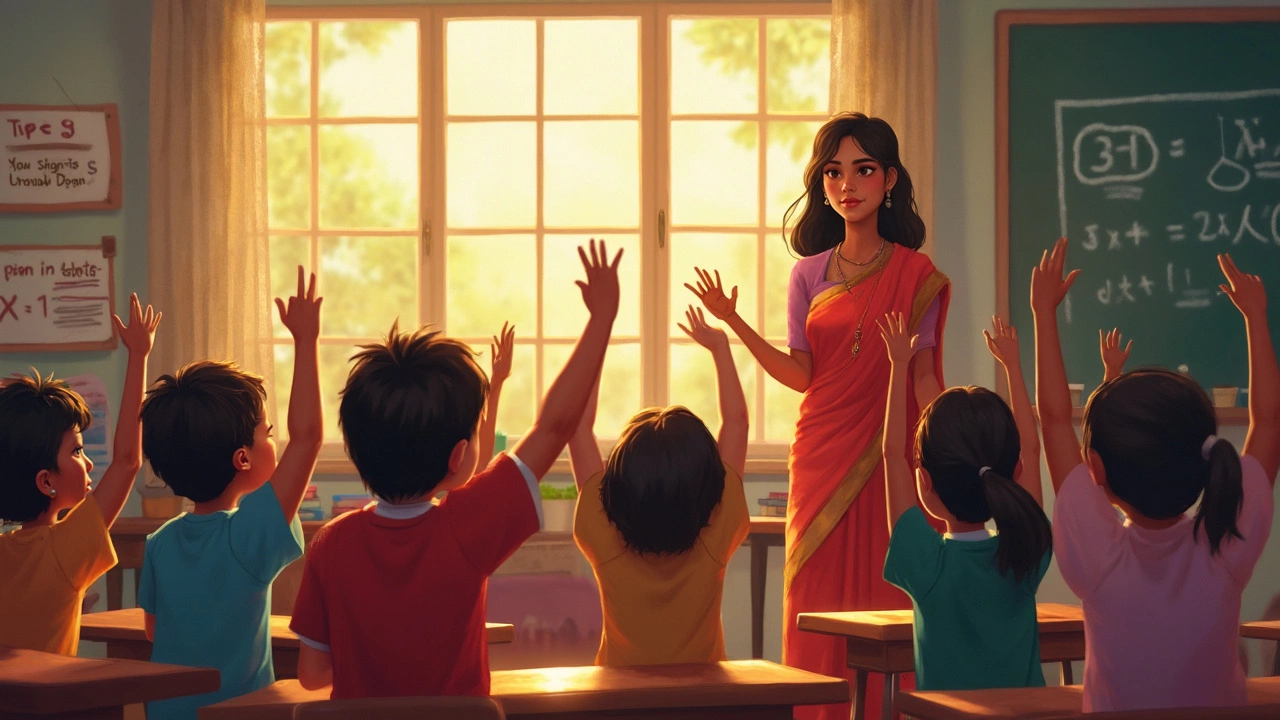Choosing the right school board for your child might feel like navigating a maze, especially with so many options out there. But if you're eyeing a future-ready education, the CBSE (Central Board of Secondary Education) could be a solid contender. This board isn't just about textbooks and exams; it's about shaping students into well-rounded individuals.
Now, what makes CBSE a top pick? Well, for starters, it's a board that keeps up with the times. The curriculum is frequently updated to include the latest developments in education, ensuring students aren't left behind in this fast-paced world. Plus, if you're thinking beyond just academics, CBSE has your back—it emphasizes sports, arts, and life skills, too.
- CBSE Syllabus Breakdown
- Benefits of CBSE
- Comparing with Other Boards
- Tips for Choosing the Right Board
CBSE Syllabus Breakdown
Alright, so let’s break down what exactly the CBSE syllabus includes and why it’s a big deal. CBSE is renowned for its comprehensive and well-structured curriculum, which emphasizes both theory and practical applications. This education board aligns closely with national competitive exams like JEE and NEET, making it a favorite among parents who have engineering or medical aspirations for their kids.
The CBSE curriculum is split into various subjects with a stress on core knowledge areas. For science students, subjects include Physics, Chemistry, Biology, and Mathematics, which are designed to build a strong foundation. Similarly, humanities and commerce streams have their detailed structures, encompassing everything from history and geography to accountancy and economics.
- Mathematics: CBSE Math drives students through fundamental concepts of algebra, calculus, geometry, and statistics, laying a strong groundwork for future technical studies.
- Science: Divided into Physics, Chemistry, and Biology, it challenges students to grasp basic laws, theories, and interact through experiments.
- Languages: English is often mandatory, ensuring students have strong communication skills. Many schools offer a second language like Hindi, Sanskrit, or a regional language.
- Social Science: Covers history, geography, political science, and economics, making sure students are well-versed in societal structures and historical knowledge.
| Subject | Marks Distribution |
|---|---|
| Mathematics | 80% Theory, 20% Continuous Assessment |
| Science | 70% Theory, 30% Lab Work |
| Social Science | 80% Theory, 20% Projects |
One standout feature of this syllabus is the focus on Continuous and Comprehensive Evaluation (CCE). This approach nurtures students through regular assessments, projects, and assignments, which can be refreshing compared to traditional rote memorization. Moreover, this system helps in identifying students’ strengths and areas for improvement early on.
Through this structure, CBSE aims to provide students with a holistic education that isn’t just about the books. It includes life skills, physical education, and value education, making students ready not just for exams, but for life.
Benefits of CBSE
Choosing the CBSE syllabus for your child's education comes with a ton of perks that can set them up for life. First off, CBSE is recognized across India and even globally, working wonders if you're planning on transferring schools or moving abroad. It gives students a standardized curriculum that’s rigorous, yet flexible, making sure they don't just memorize but understand what's being taught.
One major highlight is its stress on conceptual learning. So, instead of rote learning, kids actually grasp concepts—think of it as learning how things work, rather than just the 'what'. This approach is geared toward making students critical thinkers, something crucial in today’s world that values problem-solving and innovation.
Another big plus is the inclusion of life skills and co-curricular activities. CBSE doesn't just focus on classroom learning; it emphasizes holistic development. Whether it’s sports, arts, or public speaking, there's room for students to shine in areas beyond academics.
Plus, with futuristic education in mind, CBSE students have a leg up in competitive exams like IIT-JEE and NEET. The strong foundation laid by CBSE's science and math curriculum helps students tackle these hurdles with confidence.
- Globally recognized
- Focus on conceptual learning
- Holistic development
- Strong preparation for entrance exams
- Emphasis on life skills
Overall, if you're aiming for an education that goes beyond textbooks, CBSE might just be what suits your child’s future aspirations.

Comparing with Other Boards
So, how does the CBSE syllabus stack up against other educational boards like ICSE or various state boards? Each board has its own charm and focus, making the choice quite personal depending on what aligns with the student's aspirations and learning style.
Let's start with the ICSE (Indian Certificate of Secondary Education). Now, this board is known for its extensive syllabus and focus on detailed learning. If you're someone who thrives on depth and versatility, ICSE might catch your eye. In fact, many educators praise its comprehensive approach, especially in languages and arts. However, some parents feel it can be overwhelming with its vast syllabus.
On the other hand, CBSE is often preferred by parents who want a balanced approach with steady rigor. It's widely recognized for preparing students for entrance exams like JEE and NEET, thanks to its strategic curriculum focusing on strong science and math skills. According to a study by the National Institute of Educational Planning and Administration, "CBSE schools are often considered better equipped for preparing students for competitive exams."
State boards, meanwhile, have their unique advantages. They often focus on regional languages and culture, which can be a big plus if you want your child to stay connected to their roots. The curriculum tends to be tailored to local educational requirements, which can make for a simpler and less stressful educational journey compared to CBSE's nationwide standardized exams.
Here's a quick rundown of some key differences:
- ICSE: Broad, detailed syllabus, emphasis on languages and arts.
- CBSE: Strong focus on science and math, ideal for competitive exams.
- State Boards: More regional focus, simpler syllabus, locally relevant education.
Ultimately, choosing the right board boils down to what you want for your child's future. Is it a well-rounded curriculum with emphasis on extra-curriculars and exam prep like CBSE, or a more in-depth, topic-rich approach as in ICSE? Each board has its pros and cons, so think about what's best for your child's learning preferences and future goals.
Tips for Choosing the Right Board
Picking the right education board for your child can feel like a big decision, but it doesn't have to be overwhelming. Here are some practical pointers to help steer you in the right direction:
- Understand Your Child's Needs: Every child learns differently. Some might thrive in a structured environment like the CBSE syllabus offers, while others might prefer a more flexible and creative approach. Consider their learning style, interests, and strengths as you weigh your options.
- Look at the Curriculum: The CBSE board focuses on a comprehensive curriculum, covering both theoretical and practical aspects across subjects. If national-level competitive exams are on your radar, the CBSE’s syllabus is tailored to prepare students well. Check if the curriculum aligns with your future plans for your child.
- Consider Location: Where you live can impact your decision. CBSE schools are available across India and even abroad, which is perfect if you move around a lot.
- Evaluate Future Opportunities: Check if the board provides pathways for higher education and career opportunities. CBSE’s syllabus is widely recognized, and a CBSE school certificate is valued in colleges and universities worldwide.
It's all about what fits your child's future goals and your family’s needs. Remember, while the choice of board is crucial, it’s the overall learning environment and support that truly make a difference in a child's education journey.
